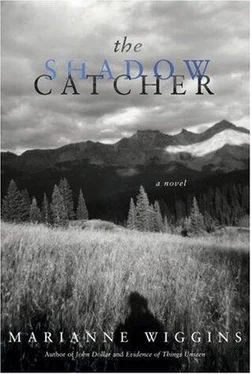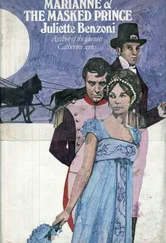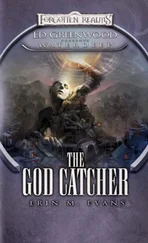An albino buffalo, yellowed as an old piano ivory, mounted on the restaurant wall, looked down on them, along with heads of elk and bear and deer and several full-sized giant rodents standing upright on their hind legs. She smiled as Hercules read the entire menu to her as if it were a sequel in a boy’s adventure. A young woman no older than herself poured cups of fragrant coffee for them and Clara, still emboldened by the image of her father traveling to Europe on his own, asked her, “Do you live out here?”
“Sure do. There’s a dormitory for us right behind the depot.”
“Us,” Clara realized, were the dozen young women serving tables.
“But there’s nothing out here.”
“And plenty of it!” the young woman laughed. “Three trains a day. We can’t get lonely. Plus we get to meet some real nice people.”
“You work for the railroad?”
“Sure do. Northern Pacific.”
“And they pay you?”
“Of course they do.”
“How much?” A question she would never have thought to ask a month ago.
“Enough to set aside. Plus we get to ride the line for free. I’m ridin’ out to San Francisco on my next time off.”
“You should work here, Clara,” Hercules volunteered.
“Then who’d look after you?”
“I could live here with you and shoot buffalo—”
“Where you two headin’?” the young woman asked.
“Washington Territory.”
“What takes you way out there?”
“Our parents died,” Hercules piped up. Dry-eyed. It was the first time Clara had heard him speak the words. “Can I have anything I want to have for breakfast even if it costs too much?” he then had asked.
She would not be spendthrift but she would not deny them common pleasures. Just this once Hercules could order buffalo steak and flapjacks if he wanted and she could treat herself to fresh Dakota trout and eggs. There were jobs for girls like her, out here, jobs that didn’t seem much worse than factory jobs in Minnesota, working for the granaries. She would find employment in Seattle, even if she could not afford to finish her abbreviated education, and she would “set aside” and save just like these young women in the railroad depot. Meanwhile she would draw her greatest pleasure from the simplest things — a glass of water and fried eggs, her brother licking maple syrup from his fingers — because it had occurred to her while sitting there that everyone she would encounter in her life from now on would be a stranger. Except, of course, for the distant Curtises.
“You’re the only person that I know in the whole world,” Hercules had said just then. Then asked, “Do you think they see us?”
“Who, Hercules?”
“Mother and father.”
“I don’t know.”
“Sometimes I think they’re watching me. I hope they are. I think they’d like it here. I think they would be proud of us.”
“I don’t think the dead have eyes, Hercules.”
He looked up at the albino buffalo, then down at his buffalo steak. “There are other ways of seeing than with eyes,” he’d said. “Sometimes you see things in your thoughts.”
“I don’t think the dead have thoughts,” she’d told him.
“I need to think they do,” he stated.
Minutes later, when they walked outside again, they found the platform lined with Indians.
Clara had seen the occasional Indian from northern Minnesota on the streets of St. Paul, but she had never seen human creatures such as these, people as weathered as old timber, who seemed never to have sheltered from the elements, whose hardscrabble poverty showed in their eyes and teeth and fingernails and feet. “Are they real?” Hercules had asked.
“Of course they’re real.”
“No, I mean are they real Indians?”
“Yes.”
“Are they going to kill us?”
“No.”
“What are they doing, then?”
“Trying to make money.”
“Why?”
The Indians — she couldn’t tell, sometimes, if one was male or female — sat on the ground, their backs against the depot wall, their pathetic wares spread out for sale on woven rugs before them. Hercules clung to her arm and she had to tell him not to stare as they walked the full length of the platform and then back again. But it was hard to keep one’s gaze away from these strange people. None spoke, few moved, and in their silence they seemed to her more like the taxidermy, the trophies on the walls inside the restaurant, than like fellow thinking creatures. They sat rigid on their dirty rugs, not really trying to sell the things they’d laid before them — items constructed of the most elemental things: straw, feathers, clay and animal carcasses. Some of the passengers lined up to have their pictures taken with a “chief,” a solemn stony figure in a feathered headdress and a vest made out of bones. But most of their fellow passengers handled the baskets and the pots and put them down again, dismissively. Some weighed the silver trinkets in their hands, necklaces and rings inset with blue-green stones, ill-formed and clumsy, Clara thought, she could imagine no modern woman of her mother’s style and taste deigning to wear such heavy, decorative things. The Indians, themselves, seemed not to care that nothing sold, seemed not to understand the elements of commerce. They seemed, oddly, in a state of non-existence, having arrived on the platform from god knows where in order to enact a play in which they were the scenery, nothing else. “What happened to them?” Hercules had asked. “They look so sad. They look like someone’s died. I think they’re sadder than I am.”
A good sign, Clara had thought: that he could imagine sadness greater than his own. Art, their father had frequently told them, was exactly that: to make art is to realize another’s sadness within, realize the hidden sadness in other people’s lives, to feel sad with and for a stranger. Hercules had pressed his nose against the carriage window as the train had lurched to life, inching forward from the Bismarck depot. And still the Indians had not moved. He had watched them solemnly and then, in a gesture understood by any human, he had raised his hand and waved farewell to them. Whose sadness were the Indians imagining, Clara wondered: whom, among the dead, did they miss, were there ancestors who, among the dead, they needed to believe were watching them, as Hercules believed their parents were? Their faces registered a state of emptiness, perhaps from looking at this too vast canvas for too long. As the train developed steam and speed the country rolled past in undifferentiated magnitude, she could see, to the horizon. How could a soul survive out here, she thought, without a mirror, without a printed word, without a line connecting one to mankind’s history, mankind’s self-perpetuating sadness? We’re not made for open spaces, she considered, they humiliate and humble us and make us search for God in granite niches. All this open territory — so important to the men back East — for what? To join the coasts. Join two halves of coastline. Connect us sea to sea. Control the money in both pockets. Was it beautiful , or scenic , all this? It was terrifying , she had thought, and as the day wore on, she slept, then woke, then slept again. Waking, she was suddenly obsessed with finding someone in the landscape, anyone, a moving figure, proof that humanity outside the train existed. Night fell and they’d stopped at Billings, and at Butte, Montana Territory, and then, opening her eyes in morning, she’d thought she’d seen a shadow racing on the rising plain and realized she was looking at a running bear, infuriated by the train. The cold increased and they’d been suddenly surrounded by snow and mountains, curtains of gray rock shimmering with ice at arm’s length, it had seemed, from the carriage windows. They had moved to seats closer to the central stove and Clara had rented extra blankets from the conductor and had heated and reheated the stones beside the stove to warm their feet. They ate thick sandwiches of rough brown bread and salty beef purchased from a squaw in Sandpoint, Idaho Territory, where they’d laid over half a day while the train took on carloads of sand for traction through the icy inclines. She’d slept some more and then, when she thought the stiffness in her lower back and neck and shoulders had become too hardened to be relieved, the conductor had announced Tacoma depot next .
Читать дальше











